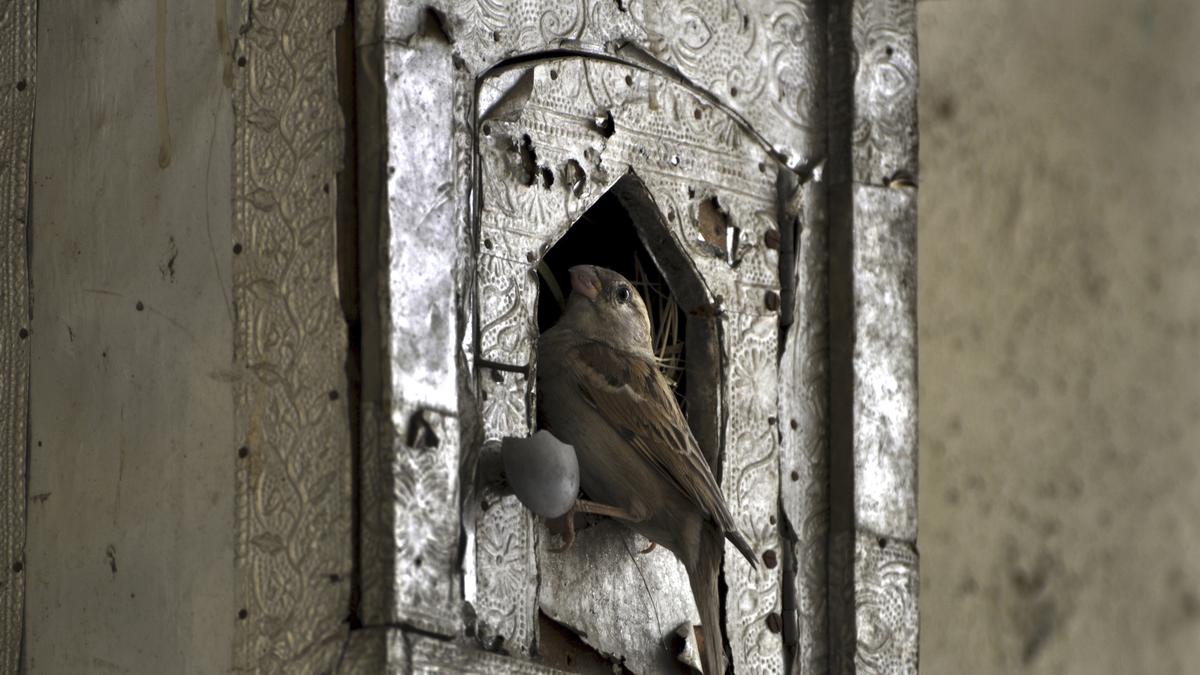
Sparrows have become rare in urban areas.
| Photo Credit: Getty Images/iStockphoto
Of the many birds, the tiny house sparrows had caught my imagination in my school-going years. A flock of sparrows have turned my tiled house into their abode unauthorisedly and refused to vacate. They felt as if they too have a minor share in the ownership of the house. Their presence enriched our lives and changed our outlook towards nature. This symbiotic relationship continued for decades but now the bond is under strain and getting weakened with each passing year.
We siblings grew up watching the sparrows, and bird watching had become a life-long passion for me.
Even before I wake up, the tiny birds would get up from bed and perch on the coir clothesline in the courtyard as trained soldiers. After overcoming sleep inertia, they would fly down to the cross beam of the dug-up well. Then they would go to some undisclosed destination to have their breakfast and having had their belly full, return quickly and relax on my compound wall, cleaning their feathers and chirping in between. Now and then, they would go to the well to quench their thirst and sometimes even take a bath.
It was their routine morning ritual and I, along with my sibling, got accustomed to their disciplined lifestyle. Watching birds became one of our pastimes.
As ours is an agricultural family, grains of one kind or the other are available round the year. So food scarcity is remote.
It was indeed a feast for them when produce is left to dry in the sun during the harvest season. My family members would ask me to keep guard. Flocks of sparrows would descend and start dehusking the grains with their strong beaks before swallowing them. Their shrewdness is seen to be believed. When I shoo them away, they would quickly fly away but return in no time when I am off guard.
But farmers would never mind the birds eating their produce; instead their presence had been viewed as auspicious.
Birds were so well taken care of that during the paddy harvesting season my grandfather would fetch a sheaf of grain and hang them at one or two vantage points for them. And we children used to wait with bated breath for the birds to arrive and our joy knew no bounds when they would take a peck at the grains.
When my mother would open the window, they would sneak into the room and start pecking at the dressing mirror, looking at their own images. Fearing that the mirror would get damaged, my mother would scare them away.
One day, I, along with my sibling, scaled up the wall by a ladder to peep into the nest. Out of curiosity, I took out one chick from the nest and tried to feed it. In the meantime, the mother bird arrived and started screaming. At the same time, my mother saw this and slapped me twice for this mischievous deed. I put the bird safely into its nest. Such was the concern shown to every living creature in those days.
Our harmonious relationship with the sparrows came under strain when my house got power connection and a ceiling fan was added to the hall. Unaware of the running fan, a sparrow rushed in only to be knocked down fatally. Since then, our distance has started increasing and mechanisation in agriculture has further widened the gulf. With the introduction of harvester machines, threshing, winnowing and sun drying has also been dispensed with. Once my house used to be full with heaps of grains, but no longer so.
Besides tree cover has been depleting, leaving them no place to rest and roost. All these woes added to the desertion and disappearance of sparrows from my house and its surroundings.
Published – March 30, 2025 03:29 am IST
